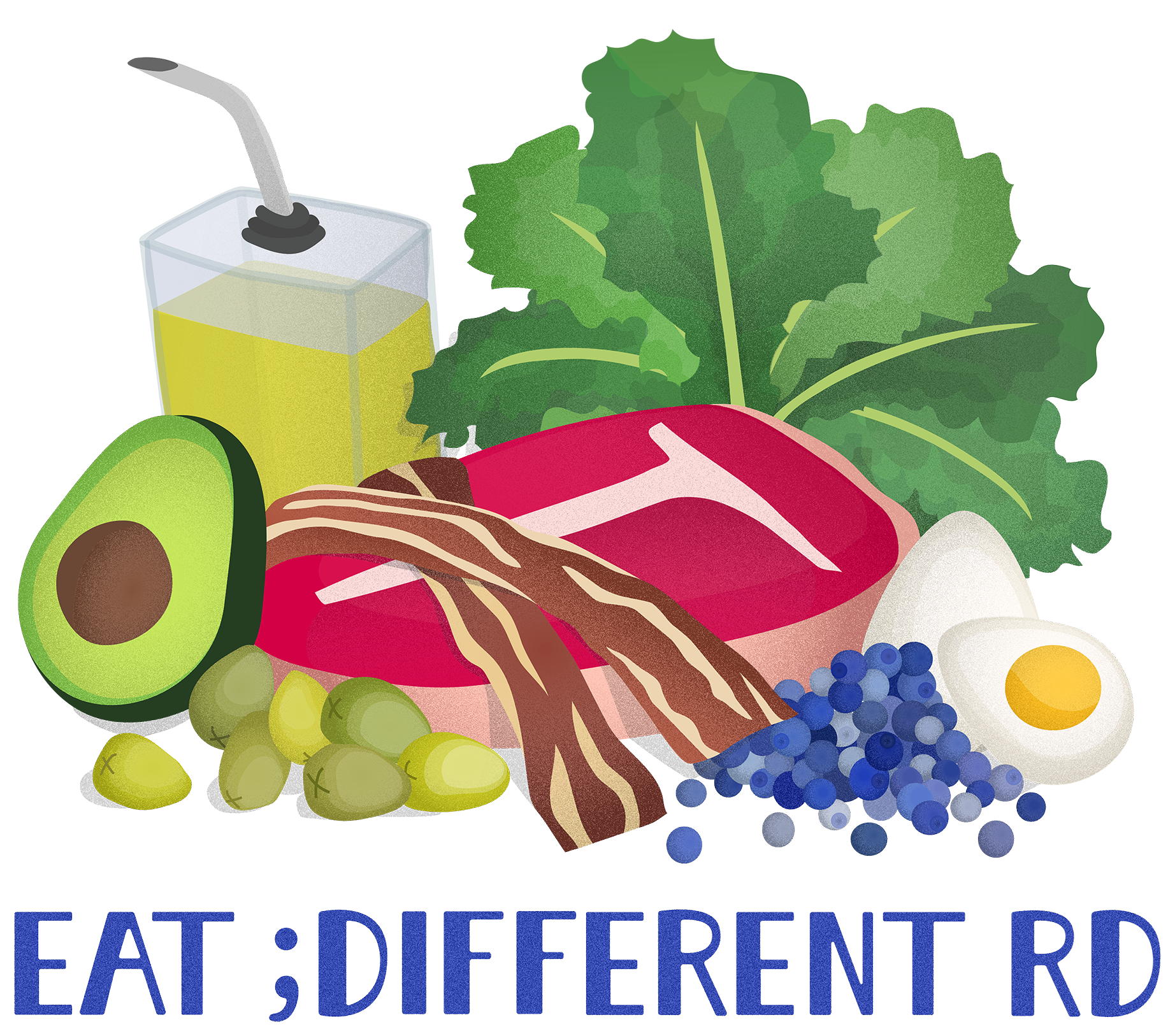How many Oranges does it take to make a cup of OJ?!
Who cares? Ha! That's a good question.
The reason it matters, is because it is so easy to drink 1-2 cups of OJ without thinking about it... And, there is a BOAT-LOAD of sugar in each cup (250ml). Additionally, most people wouldn't normally sit down and eat more than 1 full orange at a time (usually I would eat a half!! plus, it takes time to cut up or peel).
So, let's try to approximate how many oranges is takes to make a glass of OJ...
For 1 medium sized orange (all commercial varieties, ~6.7cm diameter, food code 1722) there are approximately 12.25 g of total sugar. For 1 cup (250ml) of raw orange juice (food code 1619), there are approximately 22 g of total sugar! So, by dividing 22g by 12.25, we get just under 2 medium oranges to make 1 cup of OJ.
Now, let's also figure out how much sugar that actually translates into! so, if we take 22g of total sugar, and divide by 4tsp per gram of sugar, we get 5.5 tsp of sugar per cup of OJ!
Now, let's take this one step further... The American Heart Association is (as far as I know) the first organization to make Recommendations on how much added sugar to limit in your day:
- For men: 9tsp/d MAX.
- For Women: 6 tsp/d MAX
- For children to adolescents: 3-6 tsp/d MAX - now, my recommendations are that for infants, toddlers and preschoolers, this number should be as close to zero as possible. They don't need added sugars in their little bodies! Older children should be closer to 3 tsp/d MAX and as they enter adolescence, then they can focus on a limit closer to 6 tsp/d MAX.
Hmm... after drinking just a cup of OJ (250ml), most kids have already exceeded their limit of added sugar! Adolescents and women are just at their allowance limit of 6 tsp/d and men have consumed more than half their intake allowance! And they haven't even eaten anything else yet! Like bread, or flavoured yogurts, or ketchup or salad dressing, or prepared meals... not to mention other soft drinks, flavoured milks, chocolate, cookies, cakes, etc. Hmmm... so is that cup of OJ worth it?
Now, you might say to me... "Eliana, orange juice is not added sugar, because it is all natural". To that I say: "I see your point, AND the load of sugar in that drink overrides ANY nutrient benefit (especially as we don't feel fullness cues with liquids, not to mention that all the fibre is removed in the juicing process), as a lot of that sugar is fructose and will go STRAIGHT to the liver to be metabolized (in a very similar way to alcoholic beverages). In that process, it creates free radicals in the body (which then damage in our cells, and require anti-oxidants to stop them), it can cause weight gain, it will increase the production of fat in the body, and it can override our body's ability to use insulin, which may lead to increased blood sugars (1, 2, 3, 4).
I should point out that the reactions in the body I listed above take place with any of the sweetened beverages we consume on a daily basis: pop/soda's, "fruit drinks", sports drinks, etc, as many of them use High Fructose Corn Syrup to sweeten them (at least most of these drinks in North America).
So what is my suggestion? Am I saying don't ever eat added sugars? No, that is not practical, and you will do it anyways. :)
I suggest you EAT your sugar, with a balanced meal. This way, you will not eat as much sugar because the fibre, protein, and fat in the meal will help you feel satisfied. Drinking sugar bypasses our fullness cues, and we tend to ingest a lot more sugar by drinking it than we would by eating it. :)
When you do choose to eat your sugar, eat it mindfully! Stop. Savour the taste. Concentrate on the texture of the food. Avoid eating in front of the TV or while doing other things, as you will over eat it and still feel like you didn't get enough!
As always, if you have any questions, send me a note at eliana@eatdifferentrd.com!
Wishing you the best of health, Eliana
